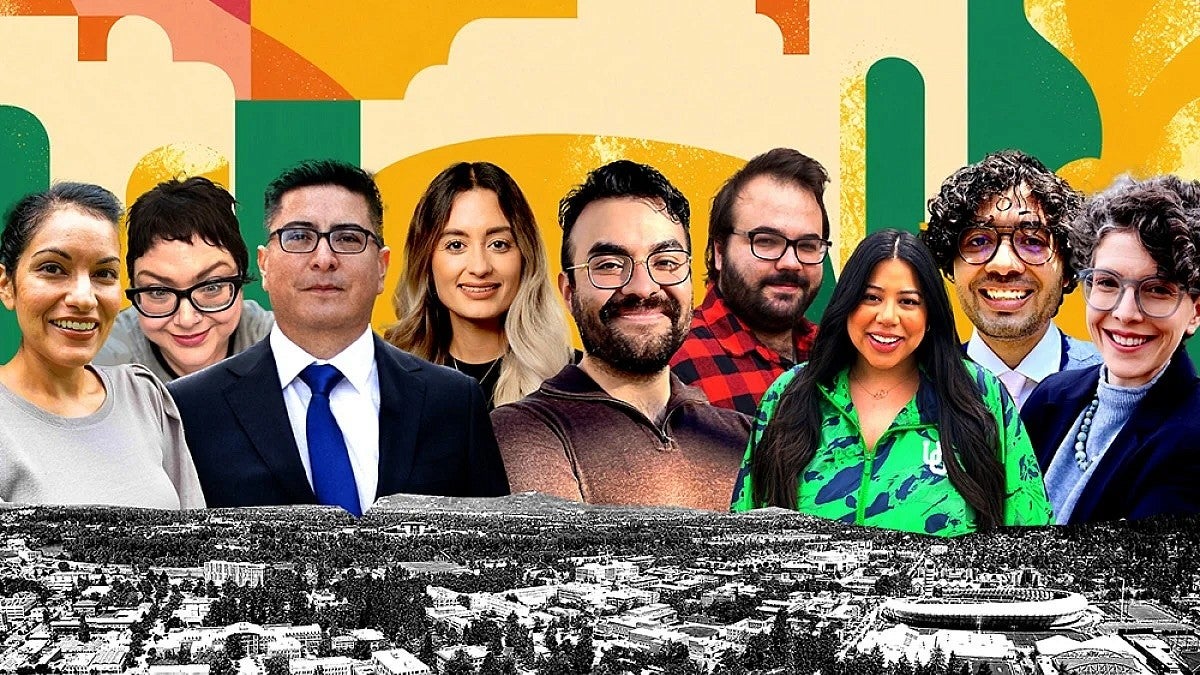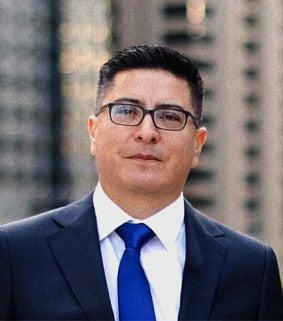
The College of Arts and Sciences is investing in its Latinx studies courses by hiring nine new tenure-track faculty members. The new hires will offer courses to meet the demands of a growing Latinx Studies Minor Program, mentor undergraduate and graduate students, provide fresh perspectives in their disciplines—and more.
Byron Villacis Cruz joins CAS after working as an assistant professor at Bowdoin College, a private liberal arts college in Maine. Before becoming a professor, Villacis worked alongside prominent social scientists and politicians in Ecuador but returned to academia after several years of working there.
Villacis Cruz has three focuses as a researcher. He works on understanding corruption as a social issue, the role of the US dollar and global institutions in the Global South, and how LGBTQ are quantified in official statistics.

A liberal arts education is core to the College of Arts and Sciences. How does your research and expertise contribute to a student’s liberal arts education?
I motivate students to think critically about the construction of knowledge, how various disciplines approach problem-solving from different perspectives, and how historical and cultural contexts influence our understanding of accepted ideas. The intersection of my specialization, political sociology and the sociology of knowledge, offers a fresh perspective to analyze social phenomena from multiple angles, foster creative thinking, and develop the ability to interpret diverse viewpoints.
At its core, liberal arts education cultivates informed, engaged, adaptable, and ethical citizens who can positively impact our world. I've developed a conceptual framework based on these goals, mainly through my experiences as a former liberal arts student and a former professor at Bowdoin College.
What was your academic career like? Did you always know you wanted to be in academia? What inspired you to become a professor?
Being a professor has been my dream since I have a memory. However, my career path was not straightforward. After earning my BA and MSc in economics, I gained valuable experience in both private and public sectors, collaborating with prominent economists and politicians in Ecuador. Initially drawn to research in social sciences, my perspective on economics shifted after witnessing its tendency towards reductionism and prioritization of theoretical models over practical outcomes.
Leading the National Institute of Statistics and Censuses of Ecuador for five years gave me insights into how public policy is shaped by quantification and the weaknesses in official data systems. This experience made me realize that sociology and demography resonated more with my academic aspirations.
I accepted an invitation from the Carolina Population Center at the University of North Carolina, Chapel Hill, where I immersed myself in socio-demographic analysis. This experience solidified my belief that a doctoral program integrating both disciplines was ideal for me.
Subsequently, I completed my PhD in Sociology and Demography at the University of California, Berkeley. My passion for sociology blossomed during this time, and I was greatly influenced by people such as Michael Burawoy, Marion Fourcade, Mara Loveman, and Loic Wacquant. Then, I accepted a position as an Assistant Professor at Bowdoin College, where I honed my teaching skills. Now, I embark on this new chapter at UO with enthusiasm and purpose, eager to contribute to this fantastic community.
How would you describe your teaching philosophy? How do you engage with students?
I guide my teaching practice through four principles: the co-construction of knowledge, the necessity of complementing lectures and debates with fun and amicable environments, mixed methods, and the systematic motivation of critical thinking. The co-construction of knowledge is facilitated through the three methods.
What’s your desert island book? What’s your favorite food?
Probably Captains of the Sands by Jorge Amado; and about food, there is no uncertainty: Encebollado, from Ecuador.
